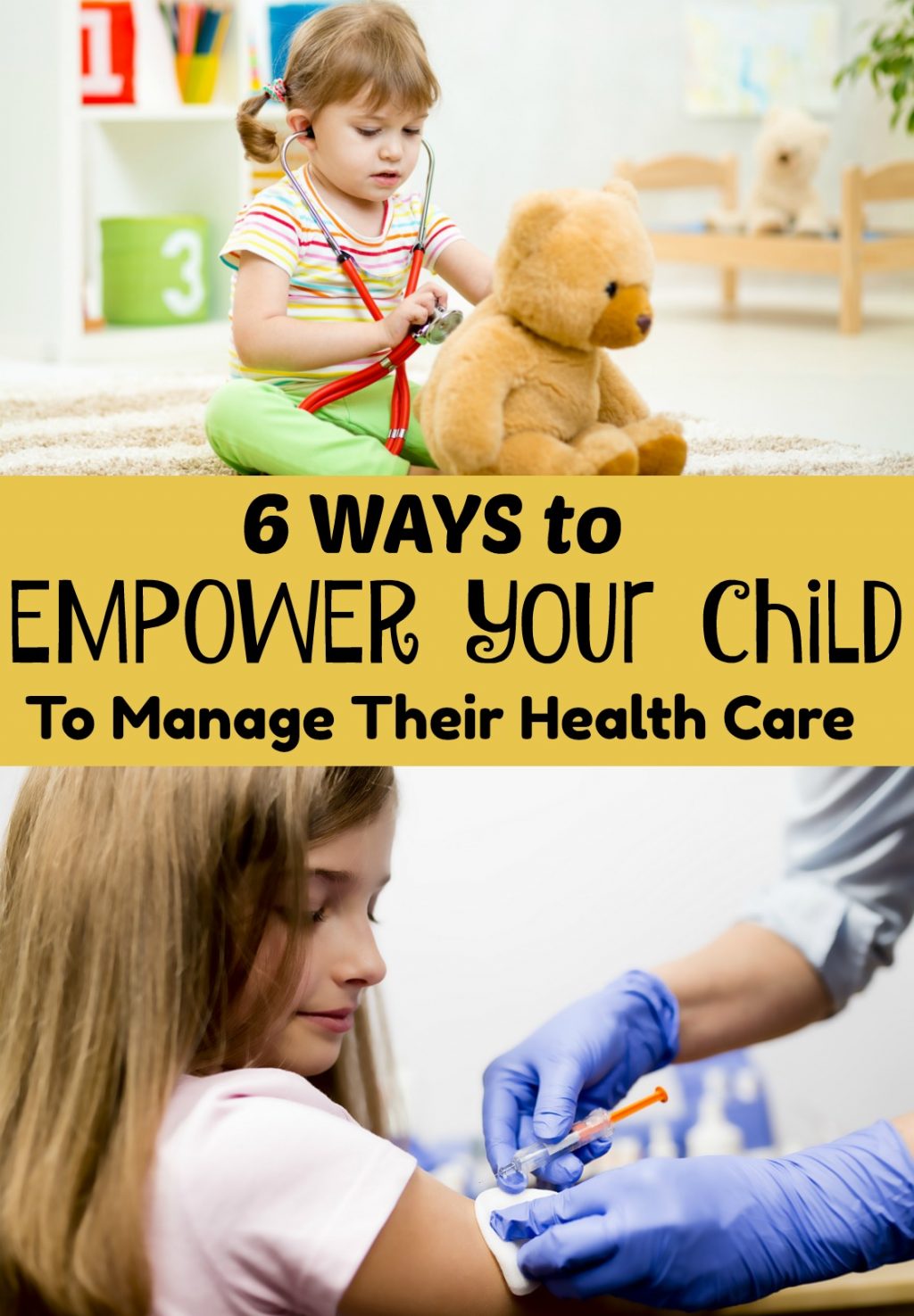
Six Ways to Empower Your Child to Take Charge of Health Care
My regular readers know my kids have special needs. I write about the challenges involved in parenting them sometimes. We shuttle (mostly I to be honest) both girls back and forth to doctors and medical appointments and for assessments so much that I get tired and overwhelmed. So I imagine they must also.
Which brings me to a tricky balance question. I was a child when I was sick with Crohn’s disease. I was in hospital a lot and shuttled back and forth to doctors a lot and I never felt empowered throughout the process until I became an adult with a career. Honest To God. I never felt I had any say in what my medical treatment was and I certainly never had a voice with which I could challenge my doctor as a child.
I wish that someone way back when thought about ways to empower your child.
Now, as a parent with kids travelling through the health care system, I believe that some of the process, and system has changed. But I know it is my job to help my kids feel safe within the health care system (which I absolutely still regard as the best in the world). So how do I do that? How do I give them the power?
How do you empower your child to take charge of their health care and have a voice? It’s a question I ask myself often and strive to make sure I am building opportunities for them to have input into the process. Let’s be honest I am still the adult. Final say is mine until they are older. BUT, at some point the aim of the game here is for them to take over their own health care so they need to get comfortable with bits of that now.
Table of Contents
Six Ways to Empower Your Child to Take Charge of Health Care.
1. My Kids Have a Say.
I’ve said it before and I will say it again. I am raising advocates and I am raising kids who empathize with others and speak up. Do they always? When it comes to others – yes. When it comes to themselves? Not always.
This past week my oldest girl, with anxiety disorder was headed to her new doctor. We walked in and we were informed that a student doctor would be present at the session. “Is that alright?” Well, my normally forthcoming child shut down immediately, squeezed my hand so hard I could hear my knuckles cracking and stopped walking. Obviously it was not okay. Message received. I stopped her in the hall and told her she was in charge. Speak up and use your voice if this makes you uncomfortable.
Finally she was able to state she was not comfortable with a stranger being in the session. I applauded that afterwards, publicly and privately. Wished I had the backbone to say the same thing when I was a kid. (At some point when you are a 14 year old girl and 4 people in a room are talking about your barium xrays and pressing on your stomach, you dissociate and leave the room entirely.) Never do I want my child to feel powerless with doctors, therapists, nurses etc.
2. They Get What They Need. ( and if they don’t then we get a different expert/health care resource or opinion.
It stuns me that I have to say this about children’s health, children’s mental health care, or special education, or kid’s welfare. All kids should get what they need. My kids get what they need. No questions. No excuses. You need more sessions of physiotherapy because of the broken arm, then someone will be providing that. Need to bump up therapy sessions because of a child who was being a total bully in class, then we are going to bump them up/increase them. End of story.
3. I Believe my Kids.
I believe my kids when they tell me something is wrong or isn’t working. They don’t always use those words. Payton had stomach aches for months from grade one on before everyone realized she was an anxious kid and school relationships especially with girls were very challenging to negotiate. There is always a reason for the ailment that is presenting itself. Listen and believe.
4. Ask Questions. (and Ask Your Child if they have any questions.)
Even when they were little, I would ask lots of questions of the doctors helping my kids. I would also then ask them if they had anything to add. I model that it’s okay to ask and get answers to your questions when at the doctor. In fact, it’s expected. Then I ask them if they want to ask any questions. I grew up feeling that doctors were very unapproachable. We never went to the doctor with a list. Your doctor was a demi-god. That what I was taught. You let them do what they needed because they knew best. I was not an empowered patient.
5. Be present. This is a hard one actually
Be there with them. I have been in more sessions with my kids, and doctor’s appointments and emergency rooms than a lot of people. I am there as their parent and their advocate too and I rarely leave the room. When my daughter is old enough to feel comfortable on her own, and when I know she is in a safe environment to be seen and respected and treated, then maybe I will be sitting in the waiting room letting her take the reins entirely. But not yet. The only time my daughter had surgery I slept in the room. If I am at hospital with my child, I don’t tweet and post and manage client accounts and take client phone calls.
Oh and this one might be most important of all
6. Know When to Stop or Take a Break
This summer we took a break from therapy for my daughter. She’s been doing talk therapy since expressing some anger and sadness that seemed explosive and almost like depression at times. So we connected with the right supports. BUT, during school it was overwhelming to do that every week or two. And in the summer I said enough is enough for now. She gets to be a kid and I get a small break from that stress too.
Sometimes Everyone Needs a Break
Super hard for me to know when to stop. But it was time. If I feel dead exhausted and resentful of all the time I need to spend at doctors with them, then I need the break as much as they do. My call. She has happily been a child this summer and enjoyed summer camps without losing time to doctor’s appointments. We are both happier this way right now. So clearly it was needed for both of us.
It’s important I am there for both of my girls. It’s also important that I am understanding the process and the treatment, so I can help them stick to it.
Over to you
How do you help your child feel like they have a say in their health care treatment?

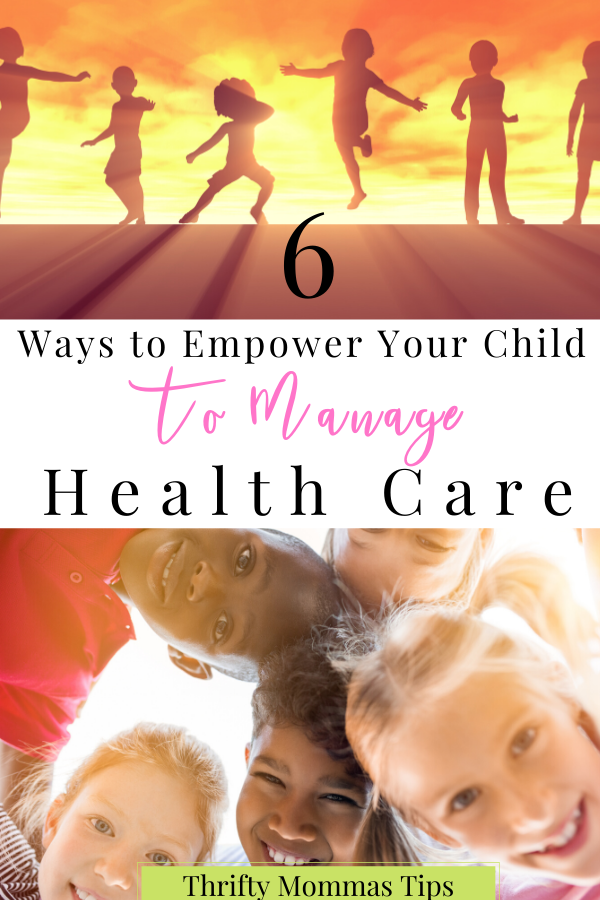
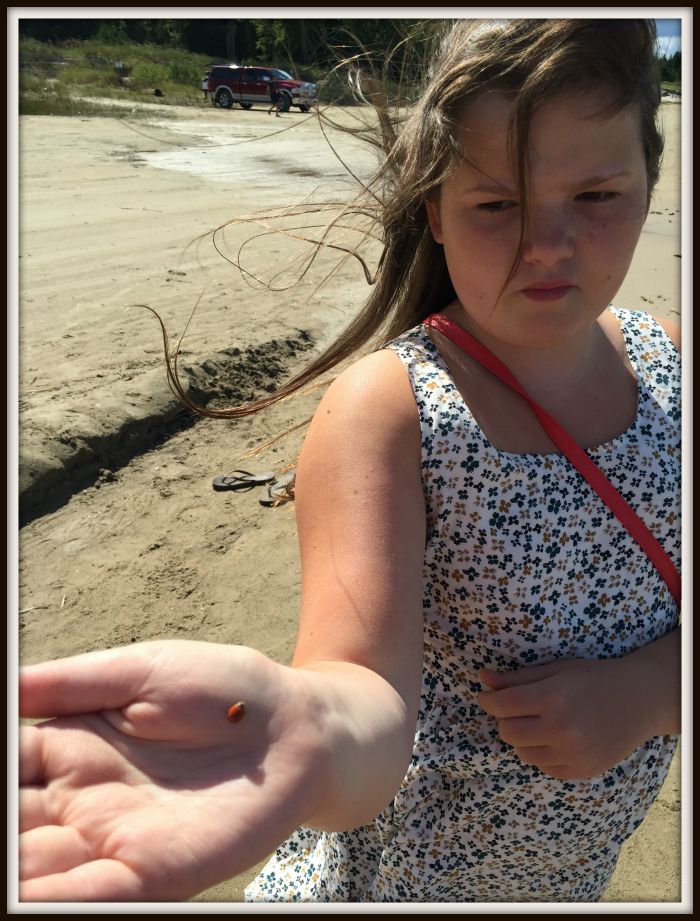
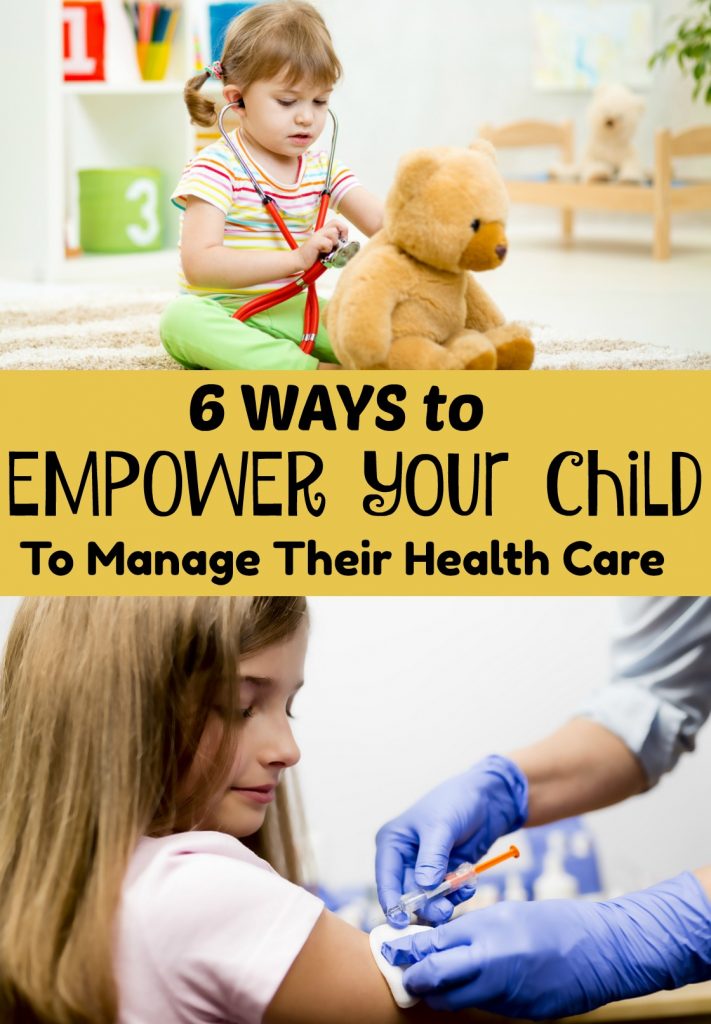
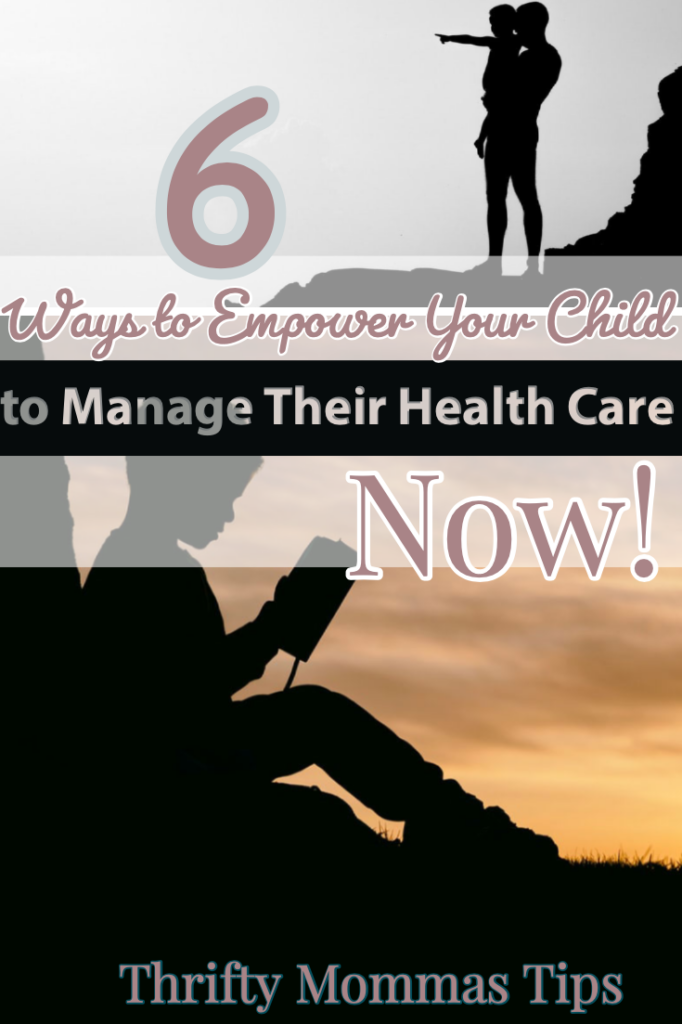



5 Comments
Jennifer Van Huss
AMAZING article! You brought up some issues (like empowering yourself) that I have never thought to teach my kids, but I want them to have! Thank you for the reminder!
Mara Shapiro
Your attitude is amazing. You’re setting them up for a lifetime of success. They are seeing that they don’t have to just take the status quo if it’s not what they need. So great.
Christy
What a fantastic article – such an important message to teach children that their voice should be heard and they should always be their best advocate. Great job!
Christy Garrett
I love that you are teaching your children how to stand up for their health. Most people don’t know how to do that, in fact, I had to learn to do that. I found communicating in writing helps me remember things that I want my dr to know.
Daniela Duriavig
It sounds like you are the perfect mom for those children. Way to go.